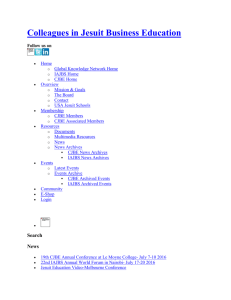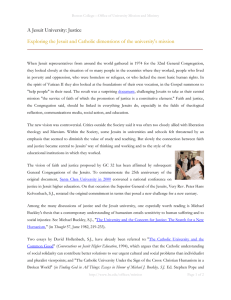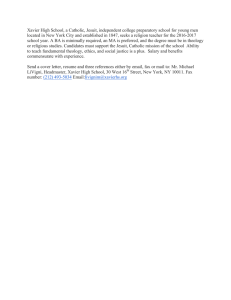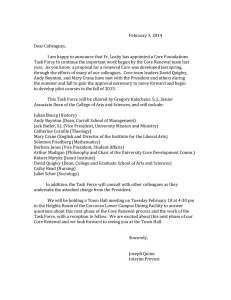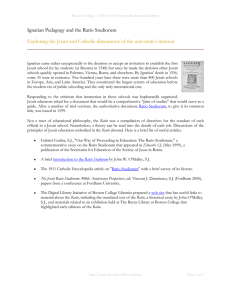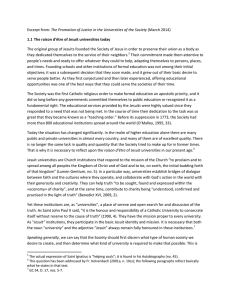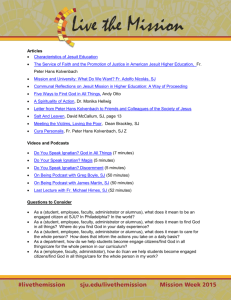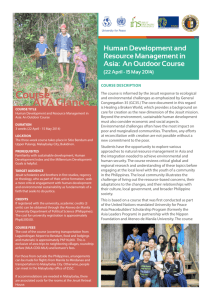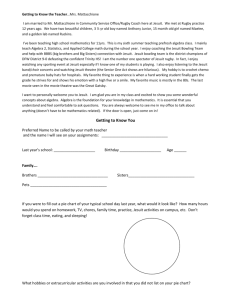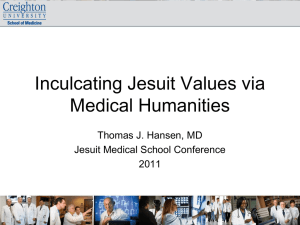A Jesuit University: Jesuit Humanism
advertisement
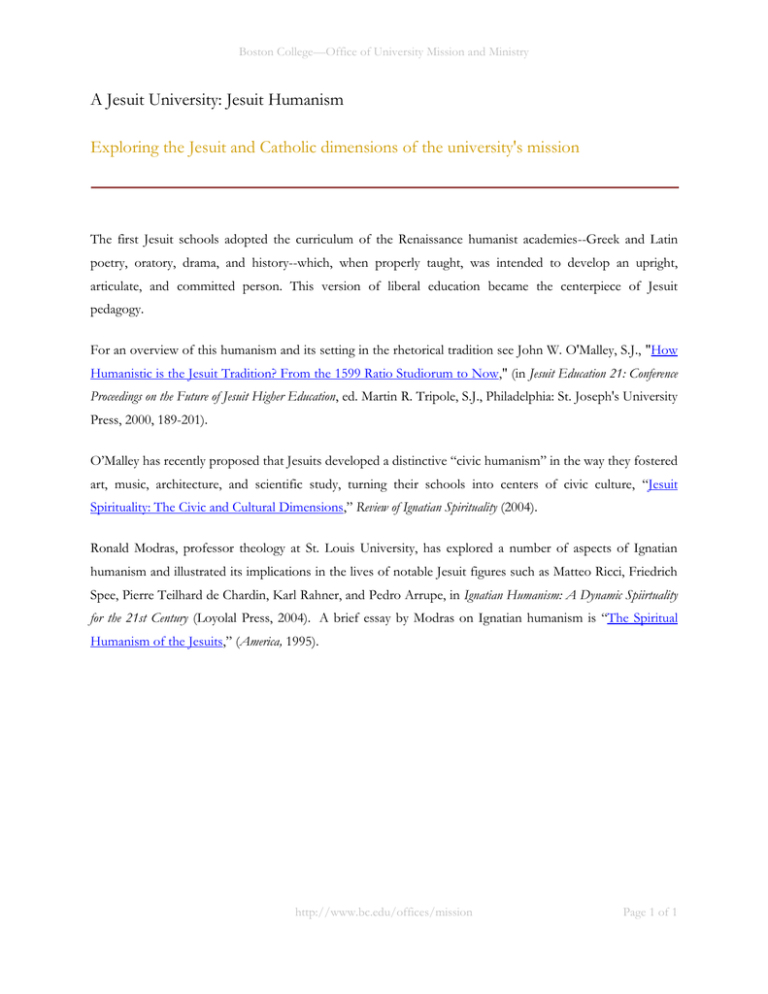
Boston College—Office of University Mission and Ministry A Jesuit University: Jesuit Humanism Exploring the Jesuit and Catholic dimensions of the university's mission The first Jesuit schools adopted the curriculum of the Renaissance humanist academies--Greek and Latin poetry, oratory, drama, and history--which, when properly taught, was intended to develop an upright, articulate, and committed person. This version of liberal education became the centerpiece of Jesuit pedagogy. For an overview of this humanism and its setting in the rhetorical tradition see John W. O'Malley, S.J., "How Humanistic is the Jesuit Tradition? From the 1599 Ratio Studiorum to Now," (in Jesuit Education 21: Conference Proceedings on the Future of Jesuit Higher Education, ed. Martin R. Tripole, S.J., Philadelphia: St. Joseph's University Press, 2000, 189-201). O’Malley has recently proposed that Jesuits developed a distinctive “civic humanism” in the way they fostered art, music, architecture, and scientific study, turning their schools into centers of civic culture, “Jesuit Spirituality: The Civic and Cultural Dimensions,” Review of Ignatian Spirituality (2004). Ronald Modras, professor theology at St. Louis University, has explored a number of aspects of Ignatian humanism and illustrated its implications in the lives of notable Jesuit figures such as Matteo Ricci, Friedrich Spee, Pierre Teilhard de Chardin, Karl Rahner, and Pedro Arrupe, in Ignatian Humanism: A Dynamic Spiirtuality for the 21st Century (Loyolal Press, 2004). A brief essay by Modras on Ignatian humanism is “The Spiritual Humanism of the Jesuits,” (America, 1995). http://www.bc.edu/offices/mission Page 1 of 1
